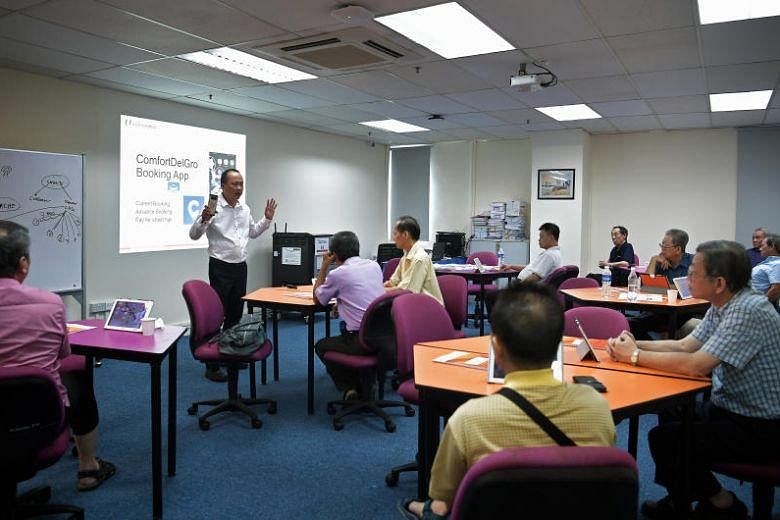Nearly 2,600 firms with a combined workforce of about 660,000 have adopted at least one of a set of standards to promote good employment practices in the last two years.
This covers about one in five workers in Singapore.
While adoption is voluntary, the standards help complement existing workplace regulations to improve working conditions, Manpower Minister Josephine Teo said yesterday.
Launched in July 2017, they stipulate good practices that employers can adopt in the workplace.
There are eight standards covering various aspects of employment. The three most popular ones are for flexible work arrangements, recruitment practices and employment of contract workers, Mrs Teo said.
She was speaking to the media on the Tripartite Standards during a visit to ComfortDelGro Taxi's CityCab Building in Sin Ming Avenue.
The top three sectors that have adopted the standards are infocommunication technology and media, professional services as well as the wholesale trade sector, she said.
On the take-up rate so far, she said: "We would like to have more but it is a good start... I think it provides a good foundation to draw more companies into the programme."
When firms agree to comply with the standards, the Tripartite Alliance for Fair and Progressive Employment Practices (Tafep), which administers the scheme, monitors compliance through feedback channels such as from the firms' employees.
Tafep steps in to address any issues when companies are not able to meet the standards.
Companies that fail to meet the standards they have subscribed to will not be allowed to use the Tripartite Standards logo, but will not face any other penalty.
The seal of approval gives public recognition to progressive employers.
Mrs Teo said the voluntary nature of the standards was a calculated decision to ensure flexibility.
"Our aim is really to improve the working conditions of as many workers as possible," she said.
"But updating laws alone will not nearly go far enough because we also have to make sure that things that are put as mandatory requirements don't become too rigid for companies," she added.
While Mrs Teo did not rule out introducing more employment standards in the future, she said the focus will be on improving working conditions in companies that have subscribed to the current standards and reaching out to more companies to do so.
"We don't want to proliferate standards for the sake of it, it's not so meaningful to do so," she added.


